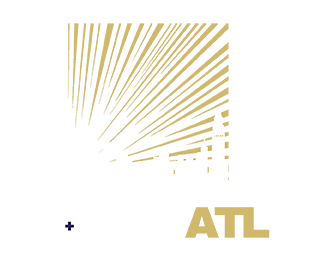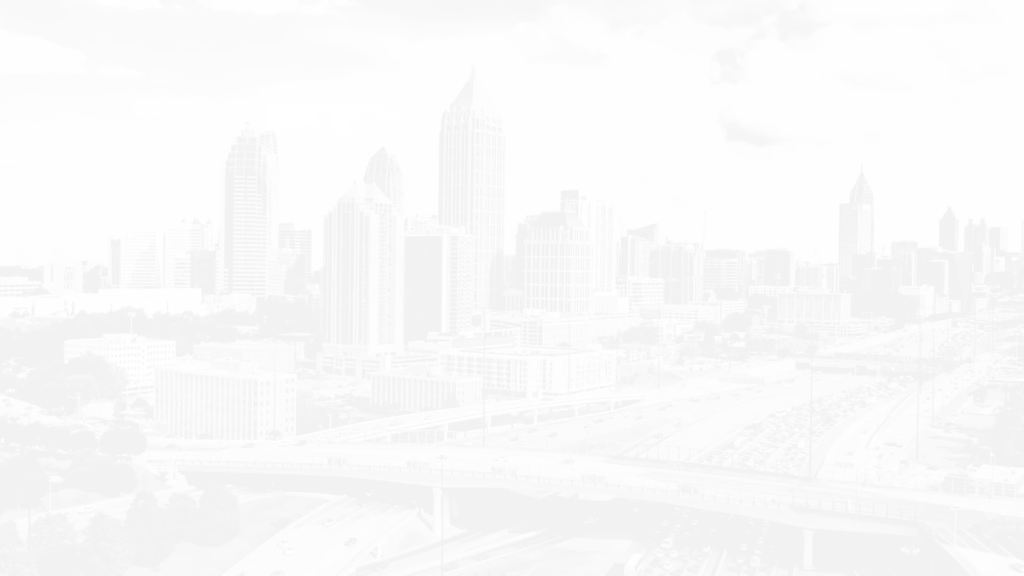Were you in a car accident in the State of Georgia and need to obtain…
Introduction: Navigating the Complex World of Car Accidents
Some sort of human error causes more than 90% of motor vehicle accidents. Unfortunately, determining which driver was at fault is often a contentious process. Drivers at accident scenes are rarely willing to admit that they were to blame, so determining fault is usually left up to police officers, insurance companies, and sometimes juries.

Nathan Fitzpatrick is an experienced car accident lawyer who has recovered millions of dollars for car accident victims in the Atlanta area. In this article, he explains how fault is determined with motor vehicle accidents and the steps you could take to improve your chances of receiving compensation if you are involved in an accident.
To begin, let’s take a look at the reasons why determining fault after a car accident is so important in Georgia.
Georgia is an At-Fault State
Georgia is an at-fault state, which means that the at-fault driver’s insurance company must compensate accident victims. This is why police officers in Georgia who are dispatched to accident scenes are required to determine which driver was responsible, and it is also the reason why insurance companies in the Peach State try so hard to shift the blame away from their policyholders.
Georgia Follows the Modified Comparative Negligence Doctrine
The comparative negligence doctrine allows car accident victims to recover damages even if they were partly to blame, and the modified comparative negligence doctrine prevents them from recovering damages if they were more than 50% responsible. That fact is why an insurance company could take a strong position in settlement negotiations even when the facts suggest that their policyholder was the at-fault driver.
If you are involved in an accident and the other driver’s insurance company can establish that you were 20% responsible, the amount of compensation you receive will be reduced by 20%. If the other driver’s insurance company can prove that you bear most of the blame, you will receive nothing.
Common Car Accident Scenarios and How Fault is Typically Determined
Every car accident is different, but almost all of them occur because one or more drivers acted negligently or made mistakes. Sometimes, the nature of the accident strongly suggests which driver was at fault, but a more thorough investigation may reveal that another party was to blame.
For example, a driver who strikes the rear of another vehicle is usually considered to be at fault. However, the responsible party could be a car manufacturer or automobile repair shop if defective or improperly repaired brakes caused the accident.
Let’s take a look at how fault is determined in some of the most common car accident scenarios.

Who's at Fault in a Rear-End Collision?
More than half of the accidents involving two motor vehicles are rear-end collisions. These collisions, typically occurring at low speeds, rarely cause catastrophic injuries.
When police officers write accident reports about rear-end collisions, they refer to the car that was struck as the leading vehicle and the striking car as the trailing vehicle. In the vast majority of cases, the driver of the trialing car is considered to be the person at fault. This fact is due to motor vehicle codes requiring a safe following distance.
Yet, in cases where the trailing driver may not be fully at fault, a highly experienced personal injury lawyer, knowledgeable in Georgia's legal landscape, is crucial. They specialize in complex scenarios to ensure accurate fault determination and fair legal support for their clients.
Understanding "Swoop and Squat" in Auto Accidents
A car manufacturer or repair shop could be partly or fully to blame if the leading vehicle’s brake lights or turn signals were not working, and the other driver could be at fault if they intentionally caused the accident by executing a “swoop and squat” maneuver.
In terms of rear-end collisions, the term "swoop and squat" refers to a fraudulent scheme in staged auto accidents, where two vehicles operated by criminals create a scenario causing an unsuspecting driver to rear-end one of the criminal's vehicles.
This setup typically involves a sudden and unexpected maneuver, making it appear that the innocent driver is at fault, thereby causing fraudulent insurance claims.
Left-Turn Accidents: Navigating Oncoming Traffic
Left-turn accidents are distinct scenarios where the responsibility often falls on the driver making the left turn, especially when colliding with oncoming traffic.
There are exceptions, however, such as when the oncoming vehicle is speeding or disregarding traffic signals. These situations underscore the heightened risks and responsibilities associated with left turns, particularly in the presence of oncoming traffic.
T-Bone Accidents: A Unique Car Crash Scenario
T-bone accidents, also known as side-impact collisions, are commonly caused by drivers who run red lights, leading to severe outcomes, including fatalities in about 30% of cases. Often occurring at intersections, these accidents happen when the front of one vehicle strikes the side of another.
The primary causes of these accidents are mechanical failure or the actions of an impatient, distracted, or drunk driver. Determining the responsible party in these common car accident scenarios largely depends on establishing which driver had the right of way at the intersection.

What Happens When External Factors Are Involved?
While most car accidents are caused by human error, not all of them are. When external factors play a role, a party other than the drivers involved could be to blame. In some car accident scenarios, there is no at-fault party. Here are some external factors that could cause a traffic accident:
Adverse weather: Driving rain, heavy snow, and dense fog can all make driving extremely hazardous. Motorists are expected to slow down and operate their vehicles with great care in poor weather conditions, but even the most careful drivers can skid on a patch of black ice or aquaplane in a thunderstorm.
Poor roads or missing signs: A municipality could be identified as the at-fault party if an accident is caused by a poorly maintained road or occurred because an important traffic sign was obscured or removed. Municipalities are expected to do all that they reasonably can to keep the roads safe and prevent accidents, and they can be held responsible when they fail to meet this duty.
Pets or wildlife: Thousands of accidents take place each year because drivers swerve to avoid striking wild and domestic animals. The driver that strikes the animal is usually considered responsible in these situations. On the other hand, domestic animal owners could be blamed if they did not take reasonable steps to prevent their animals from escaping.
Acts of God: In case law, an act of God is a natural event that no human being is responsible for. Earthquakes, hurricanes, pandemics, and tornadoes are examples of acts of God. When they cause a car accident, nobody is responsible. You won’t be able to sue anybody if you are involved in an accident caused by an act of God. But you will probably be able to submit an insurance claim if you have comprehensive coverage.
Vehicle Defects and Collision Fault
Drivers could be held responsible for a motor vehicle accident when they do not maintain their vehicles properly and drive on bald tires or with inoperative lights.
Meanwhile, auto maintenance facilities could be liable if an accident occurred because repairs were not carried out properly, and car manufacturers could be sued if a product defect of some sort was to blame. Manufacturers are expected to make sure that their products are safe, and they can be ordered to pay compensatory and punitive damages if they do not.
Strict Liability
Drivers are not usually ordered to pay damages when they did everything that they reasonably could to avoid an accident, but product liability lawsuits are decided based on the legal doctrine of strict liability. That means that a carmaker could be ordered to pay damages even if they test their products thoroughly and maintain the highest manufacturing standards.
If a defective product causes injury, loss, or damage, the manufacturer is held responsible even if they did nothing wrong. However, proving that a car is defective could be difficult if the model has no recalls or known issues in the NHTSA database.
Multi-Vehicle Collisions: A Chain Reaction of Fault
Multi-vehicle collisions are usually caused in one of two ways. Chain-reaction accidents are caused by drivers who stop abruptly or brake sharply, and concertina accidents are caused by motorists who strike the rear of other vehicles with enough force to propel them into the cars in front.
The drivers who begin the sequence of events are usually held responsible in these situations, but other motorists involved in a chain-reaction crash could bear some of the responsibility if they were following too closely or speeding. What that boils down to in this case is that a driver who causes a multi-vehicle collision or their insurer could be ordered to pay compensation to the occupants of vehicles that they did not strike.
Insurance Companies and Their Role in Determining Fault
Insurance companies in Georgia must pay compensation to accident victims when their policyholders are at fault, which means they sometimes go to great lengths to shift the blame to the other driver. This is why settling a car accident claim can be such a frustrating process in the Peach State.
If you are involved in an accident and the facts suggest that you were not to blame, the insurance firm of the other driver could:
Have your vehicle inspected to look for signs of inadequate maintenance or botched repairs.
Ask to see your cellphone data to find out if you were using an electronic mobile device when you crashed.
Check your health care records to see if you suffer from a medical condition or take prescription drugs that could have influenced your driving.
Traffic Laws and How They Influence Fault
A driver who is ticketed or arrested at an accident scene could find it very difficult to convince an insurance firm or jury that they did nothing wrong. Motor vehicle laws are written to prevent traffic accidents, so the people who break them are usually held responsible when collisions occur.
Few drivers are eager to admit that they were arrested for drunk driving or ticketed for speeding or failing to signal a lane change after an accident, but insurance companies will be able to find this information in the police report that must be completed when anybody is injured or the property damage appears to exceed $500.
How to Protect Yourself in Any Car Accident Scenario
Drivers who pursue compensation after a car accident often find themselves in a difficult position during settlement negotiations because of mistakes they made or things they said at the scene. People try to avoid conflict whenever possible, so they may say or do things to de-escalate a situation that later comes back to haunt them. Here are some of the mistakes you should avoid if you are involved in an accident:
Admitting fault: Admitting fault at a car accident scene is rarely a good idea, even if you think you were to blame. Avoid getting into an argument with the other driver, and let the responding police officers do their jobs.
Losing your temper: We often say or do things that we later regret when we become angry, so try to remain as calm as possible if you are involved in a collision.
Failing to gather evidence: Settlement offers are based on evidence, not allegations, so you should take photographs and gather the names of witnesses whenever you are involved in an accident.
Failing to seek medical treatment: Some of the most common and most serious car accident injuries do not present symptoms immediately, so you should seek medical treatment after a crash even if you seem to be unhurt. If you don’t, an insurance firm could claim that your injuries are not accident-related.
Not consulting a Georgia personal injury lawyer: In the aftermath of a car accident, not seeking the expertise of a personal injury lawyer can be a critical oversight. A Georgia personal injury lawyer can provide crucial guidance on legal rights and options, helping to navigate the complexities of accident-related claims and ensuring fair treatment in settlement negotiations.
What to Do if You Disagree with the Fault Determination
Insurance companies have a financial incentive to settle car accident cases for as little as possible, so there is a good chance that you will be unhappy with the compensation you are offered if you file a claim. If you or your car accident lawyer cannot reach an acceptable agreement with an insurance firm at the negotiating table, you will have a couple of options.
Alternative Dispute Resolution
Disputing parties are sometimes able to reach amicable agreements by pursuing alternative dispute resolution approaches like mediation. These sessions are less adversarial than court proceedings, and mediators are trained to help disputing parties find common ground.
Personal Injury Lawsuits
If all attempts to settle your car accident claim amicably end in failure, you could file a personal injury lawsuit to seek compensation. If the other party was driving without insurance, litigation could be your only option. If you do file a lawsuit, you will not have to prove your claims beyond a reasonable doubt. Civil cases are decided based on preponderance of the evidence, meaning you will only have to convince the jury that your account of the events in question is more likely true than false.
Conclusion: The Importance of an Experienced Car Accident Lawyer
You could negotiate with an insurance company yourself or represent yourself in court, but you are more likely to be happy with the outcome if you secure the services of an experienced professional to advocate on your behalf. Car accident lawyers know about the tricks and tactics insurance companies use to settle claims cheaply, and you will be taken more seriously if you enter negotiations with an attorney by your side.
The Fitzpatrick Firm has represented hundreds of car accident victims, and we have a track record of success in personal injury cases. If you were injured in an accident and would like to explore your legal options, you can call us at (678) 607-5550 to schedule a free consultation.


